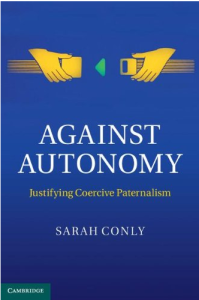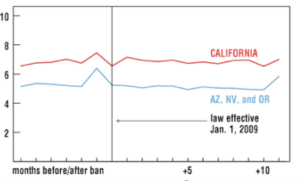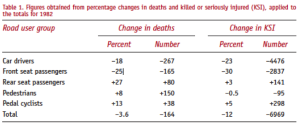Risk compensation the proposition that a persons perception of risk influences their risk-taking behaviour has now become conventional wisdom. No one now disputes that rock climbers with ropes will attempt manoeuvres that they would not attempt without them, or that trapeze artists will attempt manoeuvres with nets that they would not attempt without. The insurance …
Category: risk compensation
May 09
Change has to take root in people’s minds
The main headline in todays Daily Mail reads: £90 fine if you’re texting at the wheel: Minister warns of safety crackdown US experience suggests that the crackdown is unlikely to achieve its desired effect. There the success of attempts to deal with the texting-while-driving problem by means of legislation has been the subject of a …
Feb 12
Repeal the Seat Belt Law
Peter Bonisch has posted a comment on my RoSPA post (11 February) that merits an answer. He asks: would you advocate now removing the seatbelt requirement? The world has changed since the law was introduced including having been changed by it. Would it now be constructive to abolish the law in the knowledge that we …
Feb 11
Open letter to Tom Mullarkey, CEO of the Royal Society for the Prevention of Accidents.
Dear Tom Following our meeting at a dinner at the RSA over six years ago I sent you an email (22 February 2007).You replied the same day saying When I have a moment, I would like to look into this in more detail and so I will follow up on the links you have kindly …
Feb 08
30 years in the jungle with the Royal Society for the Prevention of Accidents
31 January marked the 30th anniversary of the implementation of Britains seat belt law. A television interviewer sent to quiz me about my opposition to the law said I reminded him of Hiroo Onoda, the Japanese soldier who spent 30 years in the jungle, fighting on, unaware that the war had been lost. The interview …
Jan 08
Thinking Streets
A recent BBC radio 4 programme entitled Thinking Streets takes listeners on a refreshing tour of traffic management schemes that are elevating the status of pedestrians and cyclists relative to that of those in motor vehicles. The effect, as researcher/presenter, Angela Saini notes, is civilizing – while also reducing accidents. The programme features Ben Hamilton-Baillie, who …
Oct 28
Moral hazard: bonuses, seat belts and condoms
(If experiencing problems with IE7, please try Firefox, Opera or Safari) “Moral hazard is a term that dates back to the 1600s. Until recent times its use has been mostly confined to the insurance industry to refer to behaviour that responds to changes in perceived risk. The industry has noticed that people who have contents …
Sep 23
Open letter to Executive Director of PACTS
To Robert Gifford Executive Director, The Parliamentary Advisory Council for Transport Safety Dear Rob This claim made over a year ago is still on the PACTS website: On the 31st January 2008, the 25th anniversary of the law change which made front seatbelt wearing compulsory was celebrated. PACTS itself was set up by Barry Sheerman …
Aug 15
Cycle helmets and the importance of culture
On 11 August the Guardian published an article entitled “Do cyclists really need helmets?” It noted the difference in cycling culture between continental northern Europe and elsewhere. I submitted a letter on the subject that they declined to publish. So I have submitted it to my blog where I have a 100% success rate. Do …
May 09
Are we doomed to live in an oppressive safety culture?
Martin Parkinson raises an interesting question (comment on previous post): what should be the reaction to an accident that, a priori, was an extremely low probability event? He suggests that any attempt to reverse the counterproductive aspects of ˜health and safety culture is doomed to failure. After an accident he argues that most people will …
- 1
- 2



